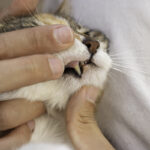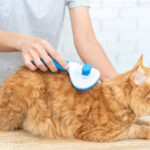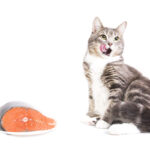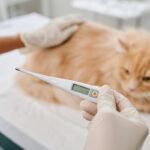Diagnosing your beloved pets with some chronic disease is truly heart-wrenching. Even with chronic diseases, your cat may lead a comfortable life for several years provided it is given the best nutritious food and a healthy lifestyle. How common is Kidney Disease in Cats?
Well, just like humans, pets like cats and dogs may also experience kidney diseases. Although kidney disease is quite a common problem in felines, it can be handled effectively by following a specific kidney diet for cats. Due to an infection or exposure to antifreeze, cats may quickly develop kidney disease.
Sometimes, there could be no potential reason behind the occurrence of kidney disease in cats. Based on the case specifics, the symptoms of kidney disease in cats and the treatment will differ. Most often, a significant change in the diet and lifestyle of the cat can help.
Let’s explore the detailed article to learn more about the vital nutrients and food choices that help treat kidney disease in cats upon understanding the signs, and causes of chronic kidney disease. Have a glance!
Contents [hide]
- What Is Kidney Disease In Cats?
- Signs and Symptoms of Kidney Disease in Cats
- Causes of Chronic Kidney Disease
- Is There Any Diet For Kidney Disease In Cats?
- Foods Low in Phosphorus
- Homemade Foods for Cats with Kidney Disease
- Prescribed Foods for Kidney Disease in Cats
- Nutrients Necessary for Kidney Disease in Cats
- Preventing Kidney Disease in Cats
- FAQs
- Conclusion
What Is Kidney Disease In Cats?
Is your feline companion suffering from Cat Kidney Disease? It’s devastating news for the pet parents when they hear from the veterinarian that their cat is suffering from chronic kidney disease. Chronic Kidney Disease is one of the most common kidney-related problems in cats. In short, Chronic Kidney Disease is referred to as CKD.
Thousands of small filters namely nephrons are present in a cat’s kidneys. Kidneys play a vital role in the body by filtering waste products or toxins from the bloodstream and recycling key compounds such as minerals and amino acids. Usually, toxins are flushed out of the cat’s body especially in the form of urine through the kidneys.
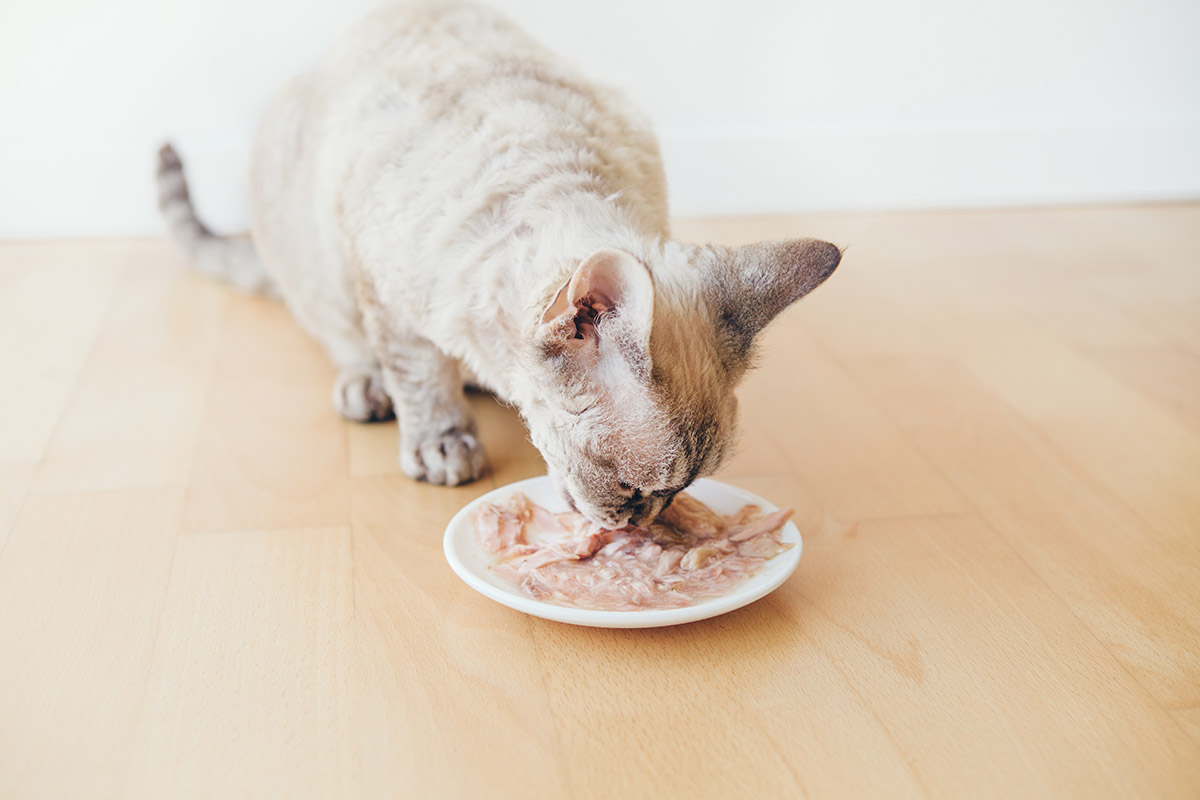
When these kidneys stop functioning like before at a specific point, the toxic waste substances such as urea and phosphorous start to back up within the body of the cat. As a result, the poor functioning of the kidneys in the cat leads to dehydration as more water is lost in the form of urine than normal.
Chronic Kidney Disease is caused in cats when there is a malfunctioning of nephrons. Kidneys in cats fail to eradicate the toxic substances from the blood. As a result, all the waste products accumulate in the bloodstream of cats gradually causing significant damage to the kidneys.
Signs and Symptoms of Kidney Disease in Cats
If you observe your cat behaving abnormally for some time or showing certain Cat Kidney Disease Symptoms then, it indicates that your feline is suffering from kidney problems. If your cat is urinating more than usual, it could be an indication of acute kidney failure. It is highly crucial to watch for the signs of kidney disease in cats.
The most common signs of kidney disease include enhanced thirst, frequent urination, sudden loss of weight, etc. Sadly, you may witness these symptoms only when the kidney disease enters into advanced stage. The early Symptoms of Kidney Disease in Cats are very slight and it’s not possible to diagnose that the cat is suffering from a kidney disease in the starting stage.
By monitoring the cat’s health through frequent check-ups, you can easily identify that the cat is having chronic kidney disease. In this article, we have mentioned the symptoms of kidney disease in felines. Check it out!
- Loss of Weight
- Diminished Appetite
- Increased Blood Pressure
- Lethargy
- Drinking more water than usual
- Urinating more or less than usual
- Vomiting
- Stinky Breath
- Gums turn into pale color due to Anemia
- Poor Fur Quality
- Unsteady Gait
- Seizures
- Twitching
- Trying to hide and escape
- Blindness
- Breathing Difficulty
- Weakness due to low blood potassium
These are the major Signs of Kidney Disease in Cats. Whenever you witness any of the symptoms in your cat, you need to consult the vet as early as possible.
Causes of Chronic Kidney Disease
Wondering what causes chronic kidney disease in cats? Though the major cause of Chronic Kidney Disease isn’t known, there are some common causes of CKD in cats. When there is significant damage to the nephron [filters present in kidneys], they can’t filter the toxic substances in the blood.
Also, it is not possible to reverse the damage caused to the nephron. Some other diseases may be the reason behind the cause of CKD in cats. Here’s a list of a few common causes of Chronic Kidney Disease in felines.
- Harmful toxins
- Cancer
- High BP
- Viral or Bacterial Infections
- Genetic Disorders
- Lack of Blood Supply
- Immunologic diseases
- Kidney Tumors [Neoplasia]
- Kidney Stones
- Feline Infectious Peritonitis
Is There Any Diet For Kidney Disease In Cats?
Yes, a specific diet needs to be followed by cats suffering from chronic kidney disease. Kidneys have multiple roles to perform in the body. The two major duties of kidneys include eliminating the waste products from the bloodstream and preserving water.
Whenever kidneys stop functioning at a certain point, the toxins in the body such as urea and phosphorous start backing up into the body. The cats may suffer dehydration due to the poor functioning of their kidneys. All these kidney-related problems can be resolved partially through proper diet.
A variety of Food for Cats with Kidney Disease that have adequate nutrients will help treat kidney problems in cats. To prevent dehydration in cats, the pet parents need to provide foods that have high water content.
Apart from this, cats with kidney problems must be given a high-quality protein diet in moderate amounts. By feeding your cat this diet, it produces fewer toxins such as urea and phosphorous. Hence, there will be less work for the kidneys to eliminate from the body.
The diets for cats with chronic kidney disease aim at helping the cat’s condition by comprising less sodium, phosphorous, urea, and protein. When you feed this sort of food to your cat, it helps prevent metabolic acidosis in felines.
Foods Low in Phosphorus
When you suspect that your cat is suffering from kidney disease, you need to take the cat to the veterinarian. The vet will prescribe certain medications depending on the stage in which the kidney disease is in the cat. Apart from the medication, the vet may recommend a low-phosphorous diet to the cat.
You may not be fully aware of the reason behind feeding a low-phosphorous diet to cats. Well, giving foods that are low in phosphorous to cats with kidney disease, diminishes the workload on the kidneys and enhances the health of the cat.
Phosphorus is one of the essential minerals that can be seen in several foods. It’s a highly required mineral that strengthens the bones and teeth of cats. A healthy cat usually excretes excess phosphorous through urine.
But, this doesn’t happen the same in the case of cats with chronic kidney disease. The accumulation of excess phosphorus and calcium levels in the urine leads to various kidney problems in cats.
Research also proved that felines with chronic kidney disease that are given a low phosphorous diet live for a long time compared to cats with no proper diet habits. The major changes to be made to the cat’s kidney diet include reducing the phosphorous foods and providing foods that are moderate in carbohydrates, protein, and phosphorus.
Looking for the best foods low in phosphorous? If so, you’re in the right place. The Low-Phosphorous diets are extremely effective at enhancing the health condition of cats with chronic kidney disease. However, make sure that you consult your vet about the changes to be made to your feline’s diet.
Some of the low-phosphorous cat foods include:
- Egg Whites
- Watermelon
- Carrots
- Zucchini
- Apples
- Bananas
- Green Beans
- Blueberries
- Broccoli
You can include the aforementioned foods as they are low in phosphorous content. When purchasing cat foods from the market, you can find the nutrition labels present on the backside.
As per the guidelines of AAFCO [American Association for Feed Control Officials], the phosphorous content for a healthy cat should be 1.25 grams per 1000 calories and 2 grams for growth.
However, these levels are essential for healthy cats following a normal diet. But, in the case of cats following a special kidney disease-specific diet, these levels should be significantly low.
Apart from the general foods that are available in the home, several products contain low phosphorous available in the market. Moreover, it is not plausible to prepare a home-based diet same as the chronic kidney disease diet benefits. Here’s a list of low-phosphorous premium foods for cats who are suffering from chronic kidney disease.
Hill’s Prescription Diet
Hill’s Prescription Diet K/D Kidney Care Cat Food is one of the best dry foods that can be fed to cats with kidney disease. This food is designed to safeguard the functioning of the cat’s kidneys and heart.
Meanwhile, this food boosts the energy levels of cats by providing high-quality protein content and phosphorous in limited amounts. Hill’s Prescription Diet Kidney Care is a chicken and vegetable stew that comprises low phosphorous but looks appealing to the eyes of cats with its unique texture.
Royal Canin Veterinary Diet
Royal Canin Vet Diet Renal Support Canned Cat Food is the best cat food that contains low phosphorus. This canned cat food is an ideal food considering various factors. Cats suffering from kidney disease often shed more weight. To meet this, Royal Canin is designed with low-phosphorous content.
This food is available in gel form. It can be given to cats by combining it with any of the Royal Canin’s non-prescription food. Royal Canin is formulated as tasty and as appealing as possible. Along with the pâté, Royal Canin Veterinary Diet Renal Support can be mixed with some other renal support formulas such as D [morsels] and T [slices] whether it is dry or wet.
Purina Veterinary Diets
Purina Pro Plan Veterinary Diets NF Kidney Function is the perfect wet cat food formulated specifically for chronic kidney disease. This cat-specific wet food comprises a moderate level of high-quality protein and a limited amount of phosphorous.
Purina Pro Plan diet can be mixed with the kibble variant of this veterinary diet. Make sure your cat adores eating this dry food. However, this diet is given to cats in the early stages of renal disease.
Blue Buffalo Natural Veterinary Diet
Blue Buffalo Natural Veterinary Diet Kidney and Mobility Support Dry Cat Food is the best grain-free cat food specially formulated for kidney disease. This formula is available in dry and wet forms enhanced with vitamins and minerals.
The key ingredients of this diet include glucosamine and chondroitin which aid in promoting the mobility and joint health of the cat. This veterinary diet is a highly nutritious food that contains low phosphorous and low sodium content. Blue Buffalo brand majorly emphasizes preservative-free natural ingredients.
Forza10 Nutraceutic Renal Support Low-Phosphorus Cat Food
Forza10 Nutraceutic Actiwet Renal Support Low-Phosphorus Cat Food is another perfect low-phosphorus cat food that tastes great for your cat with kidney disease. Forza10 brand has formulated a dry food for cats with renal disease. The key ingredients of this wet cat food include chicken liver, salmon, and lamb.
Fussie Cat Premium Chicken in Gravy
Fussie Cat Super Premium Chicken in Gravy is a canned food that is low in phosphorus and fat content. However, this diet comprises high-quality animal protein i.e., from chicken. Before giving this to your kitty, make sure you consult the vet first if the phosphorus content is adequate for your cat or not.
Homemade Foods for Cats with Kidney Disease
If your cat is not eating adequately then, it can’t meet the necessary nutritional requirements. As a result, the cat doesn’t maintain a healthy weight. In such a case, you can try a different brand of kidney diet for your cat to fulfill the nutritional needs of the feline.
Cats with chronic kidney disease may become fussy eaters. Wondering what is the Best Cat Food for Kidney Disease? If your cat doesn’t like consuming packaged foods, a homemade kidney-specific diet is a perfect option. If in case, you’re interested in cooking your cat, a homemade kidney diet for your cat is an ideal option.
In general, homemade foods are mouthwatering for your cats and they enhance the cat’s hunger. Still, homemade diets can sometimes be harmful to your cat. As per the research studies, the majority of homemade diets for cats are nutritionally deficient. This will be particularly true in the case of kidney disease recipes available in cat-related books and online as well.
Even, raw foods are harmful for ill cats as their immune system is not as powerful as they were like a healthy cat. If you feed uncooked meat to your cat, it could lead to harmful food-borne pathogens in cats.
Whether you are planning to feed home-cooked food or raw food to your cat, make sure you speak to your vet regarding the nutritional diet. If you consult a vet nutritionist, they will provide a healthy and nutritious recipe for your cat that fulfills all your cat’s requirements.
Prescribed Foods for Kidney Disease in Cats
A prescription diet is a specially prepared food designed for cats to fulfill specific medical problems or nutritional needs in felines. The Prescription diet is sometimes referred to as a therapeutic diet or a veterinarian diet. Cats suffering from chronic kidney disease can get some relief by eating prescription food.
Mostly, prescription kidney diets are formulated to render a moderate amount of protein and a very low amount of phosphorous to cats. This will help cats’ body to produce less toxins without burdening the kidneys of the cat.
Prescription foods comprise a very low sodium content to prevent dehydration in cats. In addition to this, a prescription diet is high in amino acids that aid in improving muscle mass in cats. The remaining ingredients present in the prescription foods include omega-3 fatty acids that aid in promoting kidney health.
In general, prescription foods for cats with CKD are available in canned [wet] and dry forms. Wet Canned food is highly recommended for cats with kidney disease as it comprises high water content. However, the major issue with canned prescription foods is that felines don’t show interest in consuming them.
Still, the manufacturers try to make these canned foods palatable so that the cats eat them without making a fuss. Before choosing one type of canned food brand, you need to try several other brands until your cat appreciates it.
However, prescription diets may not be the best all the time. Sometimes, prescription foods are high in carbohydrates, artificial flavors, enhanced sugars, and likely low-quality by-products of specific animals.
If you are unable to pick a perfect prescription food for your cat, just go with the homemade cat food which is a feasible alternative. Ultimately, your vet must approve the food that you feed your cat with kidney disease so that it meets all the nutritional needs.
Nutrients Necessary for Kidney Disease in Cats
A wide range of vital nutrients are important to enter your cat’s body suffering from chronic kidney disease. As part of the Cat Kidney Disease Treatment, you must provide the best diet inclusive of all the necessary nutrients. By giving a proper diet to your cat, you can manage this disease effectively. Here’s a list of vital nutrients that are necessary to handle kidney disease in cats.
1. Water
Water consumption is one of the key treatments for the proper functioning of the kidneys in cats. Cats with kidney disease excrete more urine than usual. Hence, they can easily get dehydrated. To prevent dehydration in cats with kidney disease, try to feed as much water as possible and canned foods.
As the cat’s kidneys can’t retain water as efficiently as they did before, it’s very important to give more water to the cat. Instead of feeding dry food to your cat, try to give canned foods, and flavored waters such as clam juice, tuna juice, chicken broth, etc., that have more water content.
You need to frequently change the cat’s water bowl replacing it with fresh water. Placing a water fountain in your home may be advantageous for your cat with kidney disease.
2. Protein
Protein is another important nutrient required for a cat with CKD. To prevent muscle loss and weight loss in cats, protein consumption is required in adequate amounts. However, it is important to remember that the maximum number of toxins circulating in the bloodstream of cats with CKD is from the breakdown of protein food.
Cats suffering from kidney disease may not be able to process this nutrient. This could lead to severe sickness and nausea in cats. By reducing the protein intake, you can diminish the production of waste products in the body thereby reducing the burden on the kidneys.
It is better to feed protein in limited amounts that range between 28 to 35 % so that it can be digested easily in the cat’s body. Moreover, this protein content will help maintain adequate muscle mass in cats.
3. Sodium
Try to avoid foods that are high in sodium for cats with CKD. In general, cats require less than 0.4% sodium content on a dry matter basis. Sometimes, cats may suffer from chronic kidney disease alongside other health problems like high blood pressure.
To prevent the cat from getting high BP, try to restrict sodium levels in the cat’s kidney diet. In addition to this, maintaining sodium levels in the cats will diminish the workload on the kidneys.
4. Phosphorous
To maintain the health of cats with kidney disease, it is important to feed low-phosphorus foods. In this case, if you feed foods with high phosphorus content, it may cause further damage to the cat’s kidneys and lessen the life expectancy.
By limiting the intake of phosphorus foods, it eventually reduces the risk of secondary hyperparathyroidism. The recommended phosphorus levels in the food given to cats with chronic kidney disease must range between 0.3% and 0.6%.
5. Omega-3 fatty acids
Omega-3 Fatty acids are high in anti-inflammatory properties. They play a crucial role in protecting the kidneys. Omega-3 fatty acids aid in maintaining the blood flow streaming to the kidneys and diminish inflammation in cats.
When inflammatory compounds are produced in higher amounts, it leads to oxidative stress in the kidney tissues. Hence, it is important to intake 0.4 to 2.5 % Omega-3 fatty acids regularly for cats.
Preventing Kidney Disease in Cats
As a caring pet parent, you need to take significant prevention steps for kidney disease in cats. If you are so cautious about ‘How to Prevent Kidney Disease in Cats’, just follow the preventive measures furnished below.
- Never expose your cat to toxic compounds in the household such as antifreeze/
- Keep your medications and the veterinary medications out of reach of your cat. Don’t administer human medicines to your cat without consulting the vet.
- Take your cat to the vet for regular check-ups at least twice a year to rule out the occurrence of chronic diseases in your cat.
- Observe your cat for any behavioral changes and changes in its food and drinking habits.
- Encourage your cat to drink adequate water so that your cat doesn’t get dehydrated.
- Feeding a high-quality and moisture-rich well-balanced diet to your cat is very important. Mostly, try to feed wet canned food to your cat instead of dry food.
- Maintain a healthy weight for your cat. Don’t let your cat get obese as it could lead to diabetes. If your cat has diabetes, there is a greater risk of kidney failure.
- Frequent urination is highly important in cats. If you change the location of the litter box, your cat may constrain itself from peeing. Also, cats don’t tend to use the litter box if it is dirty or unclean. Make sure you clean the litter box quite often so that your cat uses it without any hesitation.
FAQs
Here are some of the frequently asked questions related to kidney disease in cats and the diet to be given to them. If you have any queries, just check the answers furnished below.
Can Dehydration Cause Kidney Failure In Cats?
Yes, dehydration could be one of the reasons for kidney failure in cats.
Is Dry Food Reason For Kidney Disease In Cats?
Feeding dry food may not be a direct cause of kidney disease in cats. However, cats that always eat dry food can develop a risk of dehydration leading to various urinary tract infections and sometimes kidney failure too.
Conclusion
Well, this is all you need to know about the Kidney Disease in Cats. If your feline companion is suffering from renal disease, it’s highly important to take your cat for regular check-ups and frequent blood work to keep an eye on the improvement of its health.
Make sure you give timely medications and a healthy diet that doesn’t burden the kidneys in cats. Don’t make decisions on your own instead consult the vet and take his/her opinion about the cat’s health. Through this article, we have explained everything about chronic kidney disease, symptoms, causes, treatment, food choices, prescription foods, prevention, and more.
Do you still have any queries about this article? If so, feel free to ask us in the comments section. Until then, stay in touch with our website ‘TheCrazyCats.Net’. We provide more and more articles based on pets, pet behavior, pet health, food habits, and more.


